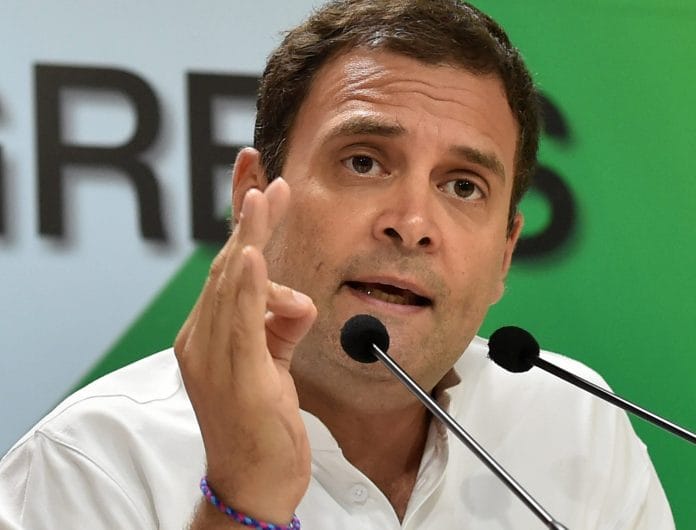India has seen five Parliamentary panel probes into corruption and impropriety but not one has led to any real action.
New Delhi: Congress president Rahul Gandhi Sunday demanded a Joint Parliamentary Committee (JPC) to investigate the Rafale controversy. His demand got due backing from Samajwadi Party president and former Uttar Pradesh chief minister Akhilesh Yadav.
But a cursory look at the history of JPCs shows they have rarely been successful in leading to any substantial action.
The JPC generally consists of parliamentarians from both Houses — one-third of its members are from the Rajya Sabha and two-thirds from the Lok Sabha. Either House can initiate the process of setting up a JPC and get consent from the other. The committee’s reports are not binding on the government and it is free to take a call on taking the report forward.
In the country’s history, there have been five JPCs to investigate alleged cases of corruption and impropriety but none have led to any concrete action.
Also read: Modi govt’s Rafale deal has more skeletons in its closet: Former defence minister Antony
Bofors Scandal (1987)
When the Rajiv Gandhi government was embroiled in the Bofors scandal, a JPC was set up in August 1987 to probe the issue. Congress leader B Shankaranand headed the panel. The committee submitted the report in April 1988, which was rejected by the opposition. India Today reported that “no one seemed to give much credence to the JPC report”.
Harshad Mehta Securities Scam (1992)
The first-of-its-kind scam in India in 1990-1992 saw stock broker Harshad Mehta being accused of artificially manipulating the stock market using bank money. The Narasimha Rao government constituted a 30-member JPC. The recommendations of the committee were neither accepted nor rejected by the government as it bought time to douse the fire.
Ketan Parekh Stock Market Scam (2001)
A JPC was constituted in April 2001 by the Atal Bihari Vajpayee government to investigate the alleged stock market manipulation by stock broker Ketan Parekh. The committee “recommended sweeping changes in stock market regulations” but many were diluted later.
Soft Drink Pesticide Case (2003)
Based on a Centre for Science and Environment (CSE) report, which claimed that soft drinks had high pesticide content, a JPC was constituted to look into the matter. It was headed by Nationalist Congress Party (NCP) leader Sharad Pawar and submitted its report in February 2004. It suggested changes in rules to regulate the beverages industry. Most of its recommendations were either diluted or not implemented.
2G Spectrum Scam (2011)
In February 2011, the UPA government formed a 30-member JPC to look into an alleged scam in the allocation of 2G spectrum. Congress leader P.C. Chacko headed the committee. The committee condemned the “presumptive loss” theory of the CAG and absolved then Prime Minister Manmohan Singh and then Finance Minister P. Chidambaram in the episode.
Also read: Dassault didn’t pick Anil Ambani’s Reliance as Rafale partner: French ex-president







If the intention is to study something from a systemic point of view, a JPC could throw up useful ideas and suggestions. That could have been the case with the JPCs set up in 2001 and 2003. Pity the recommendations were not acted upon. However, where there is a political dogfight – Bofors, 2 G, now Rafale – members will act and vote purely along party lines. The government will ensure that it is a still born exercise. With the general election so close, a JPC would be a distraction.